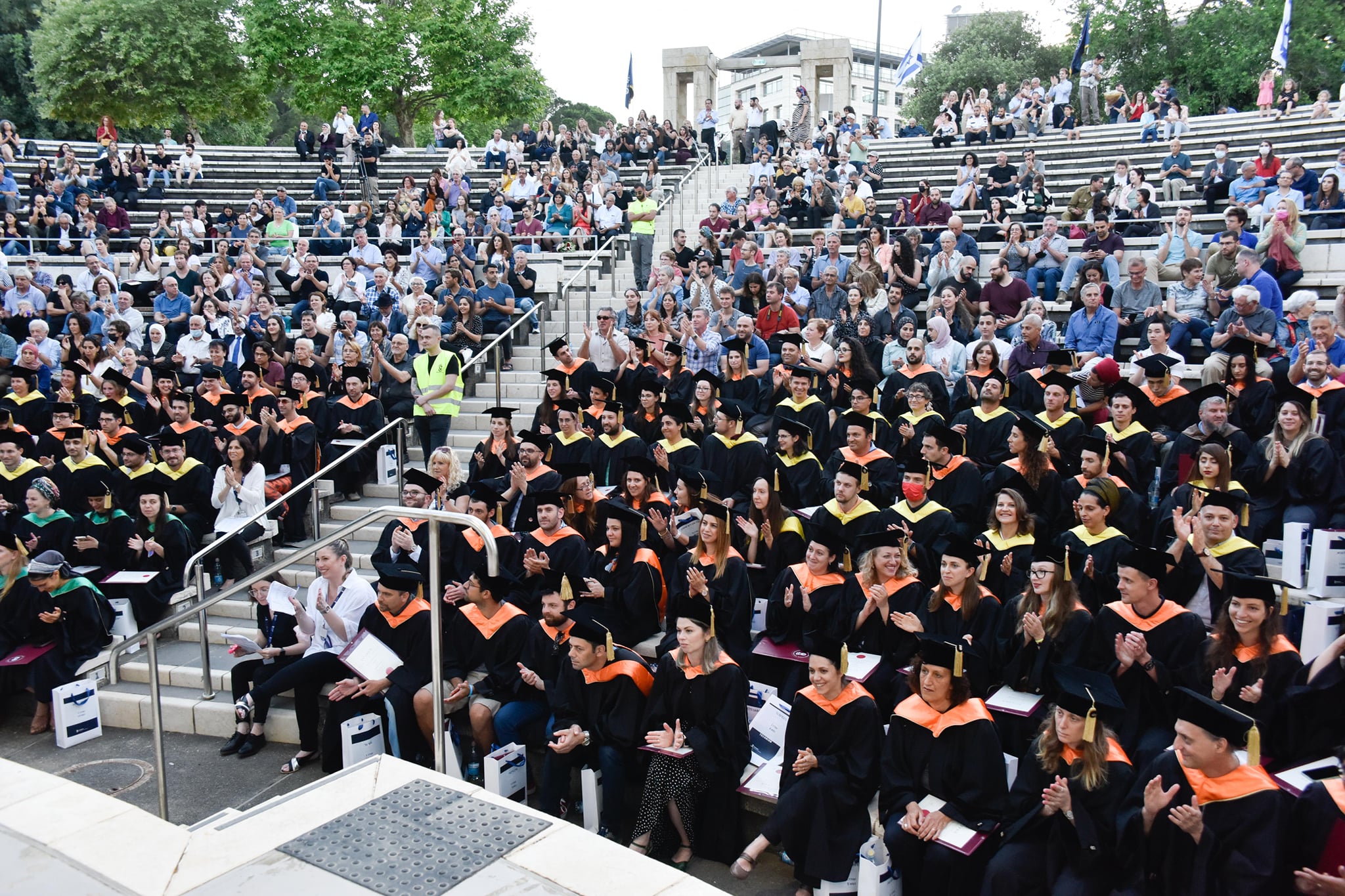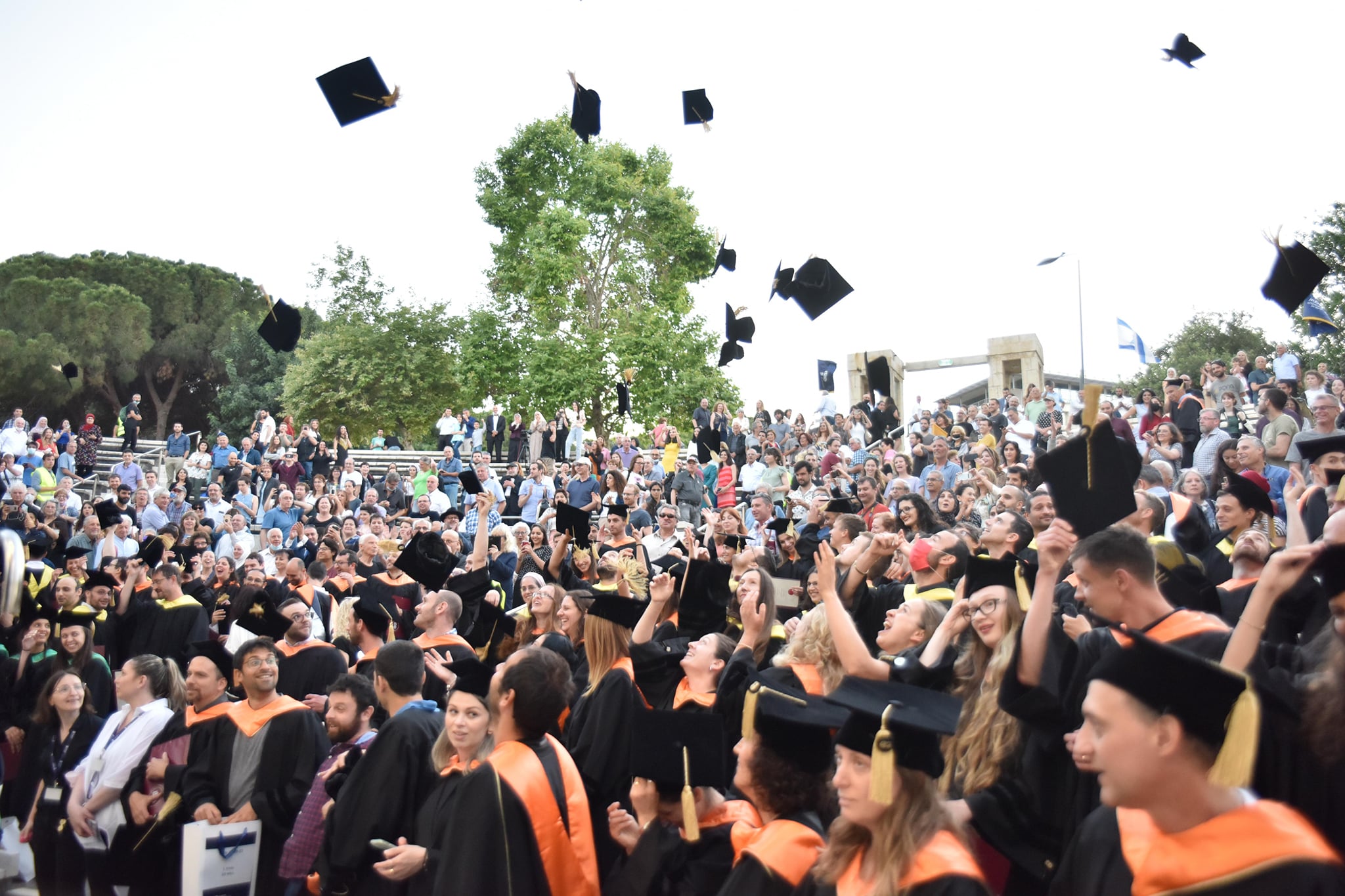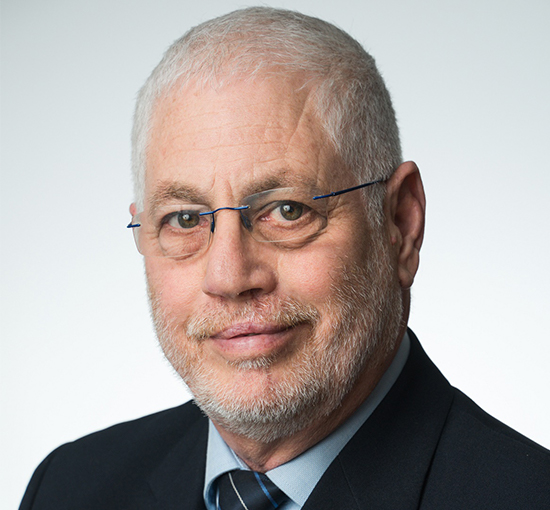199 Graduates Receive Ph.D. Diplomas

One of the most diverse classes in Technion history received their Ph.D. diplomas on May 24. Approximately 43% of the 199 new graduates are women, a record, and a significant increase over previous years. Most of the graduates (124) are native Israeli, with the rest hailing from all over the world, including the U.S., Canada, France, Austria, Ukraine, Uruguay, Italy, Belgium, Brazil, Germany, India, and China. Most graduates had numerous mentors, a nod to the increasingly multidisciplinary approach to research and education across campus.
This trend is reflected in the research of Dr. Gil Wang of the Faculty of Civil and Environmental Engineering, who gave the valedictory speech on behalf of the new graduates. Dr. Wang completed his Ph.D. under the supervision of three Technion faculty members: Professor Yiska Goldfeld, Professor Nitai Drimer, and Professor Yehiel Rosenfeld.
“At the Technion, I was exposed to the heterogeneous, diverse, Israeli society, rich in colors and beliefs,” said Dr. Wang at the ceremony. “I look at the Technion — at us — and it gives me hope and fills me with optimism. The Technion model, which emphasizes perseverance, hard work, and constant pursuit of excellence, makes any polarization in Israeli society irrelevant.”
Reflecting on the occasion, Technion President Prof. Uri Sivan said, “In recent weeks, we’ve learned that the Technion plays a major role in dealing with both external and internal threats. The external crisis highlighted the extensive technological role Technion graduates played, and still play. But I want to focus on the other role of the Technion, as a factor in the healing of society’s divisions. Since its inception, the Technion has championed equality and tolerance. For 100 years, it has maintained an apolitical identity and has given male and female students the opportunity to live and learn in an atmosphere of tolerance, equality, and mutual respect, as part of our social commitment. We expect you to continue in this way. Leadership and personal accountability are the most effective and important response to the challenges and difficulties that the events of recent days have repeatedly highlighted.”
This year’s graduating class will be a tremendous boon to the Technion and the State of Israel. Whether graduates stay in academia, pursue high-level positions in government, or make their mark on private industry, they will remind the world of the rigor of a Technion education. Yet during their time at the Technion, the graduates not only pursued excellence in their respective fields, but learned how to deal with the professional dilemmas they will inevitably come across in social, environmental and ethical contexts. This makes them particularly well equipped to address the many challenges facing society. As President Sivan noted, “If you are a beacon of tolerance, equality, and empathy, and if you continue to ask questions — then we have done our job.”
Dr. Wang added that some of his peers “will continue their research here and overseas, some will go into the industry, others will go into teaching, and others to consulting, management, and startups; but all fellow graduates will continue to lead and excel because this is their way, this is the Technion way.”

“There is Nowhere Better Than Israel to Do This”
The youngest new graduate is Arik Girsault, who completed his Ph.D. at the Faculty of Biomedical Engineering under the supervision of Professor Amit Meller. Dr. Girsault, 28, holds a dual French and Swiss citizenship, and is likely to soon be granted Israeli citizenship as well.
He chose to attend the Technion in part because of his strong Zionist beliefs, and in part because of his initial impression of the supervisor and the students in the lab. For nearly five years, he developed an advanced microscope for monitoring intracellular biomolecular processes at high temporal resolution. According to Prof. Meller, “Arik was an outstanding multidisciplinary student. He developed high skills in building a STED (Stimulated Emission Depletion) optical microscope, in preparing complex biological samples, and in computerized information processing using software that he himself developed.”
Dr. Girsault decided to make Aliyah and has already completed most of the formal arrangements. And what will he be doing here? “For the time being, all options are open — academia, industry, everything — but I have a feeling that I will be deciding in favor of the startup world, which seems challenging and interesting, and there is nowhere better than Israel to do this.”

Beginning Her Ph.D., 30 Years Later
The oldest graduate is Dr. Tirza Lauterman, 58, who completed her Ph.D. thesis under the supervision of Professor Rakefet Ackerman of the Davidson Faculty of Industrial Engineering and Management. Dr. Lauterman first came to the Technion in 1981, and after completing a B.Sc. in Information Systems Engineering at the Faculty of Industrial Engineering and Management, she enlisted in the Navy. Over the years, she advanced through the ranks, and her last position was Head of the Information Systems Branch of the Navy. In 2007, she retired with the rank of Lieutenant Colonel.
In 2010, nearly 30 years after she began her undergraduate studies, she began studying toward her master’s degree that continued into a Ph.D. Her research was in the field of problem solving, and specifically the first impressions of people on encountering a problem and the consequences of this impression on coping with the problem.
“After much research, we have come to the conclusion that first impressions determine a lot, just as they do with meeting people, and it significantly affects the time and effort that they will invest in solving the problem, as well as the final answer that comes after deep thought,” she said. “Acknowledging the existence of primary judgment is important for understanding engineering problems, and it also affects how tests and challenges are designed. If we design them in a way that will create confidence in the person’s ability to solve the problem, we will improve the person’s chances of solving it, and on the other hand, if we transmit an exaggerated impression of ease, the person might waste time trying in vain.”
Dr. Lauterman currently teaches at the Technion and at the Open University, and in the coming academic year she will also begin teaching at Bar Ilan University. She is married, a mother of three, and a grandmother.




